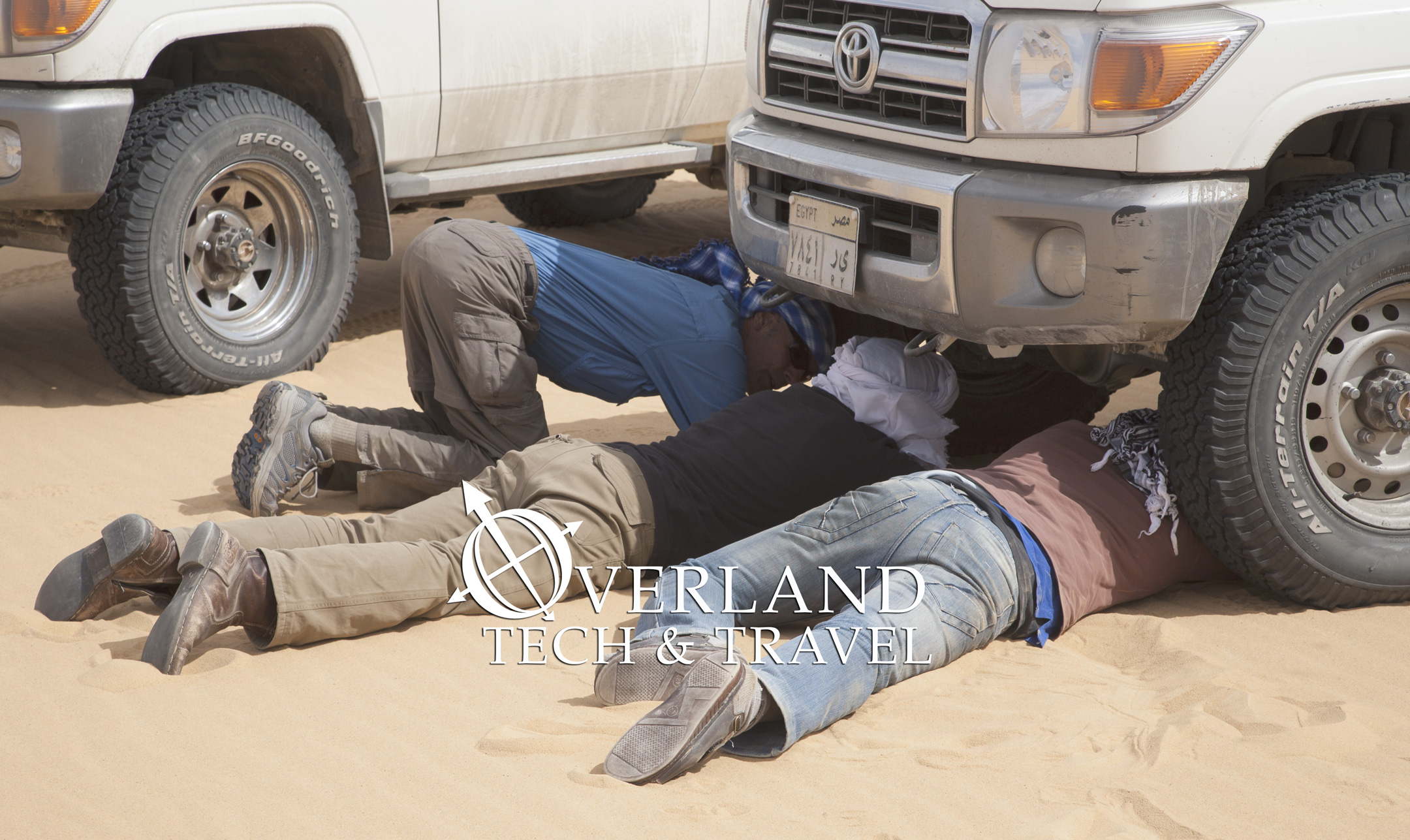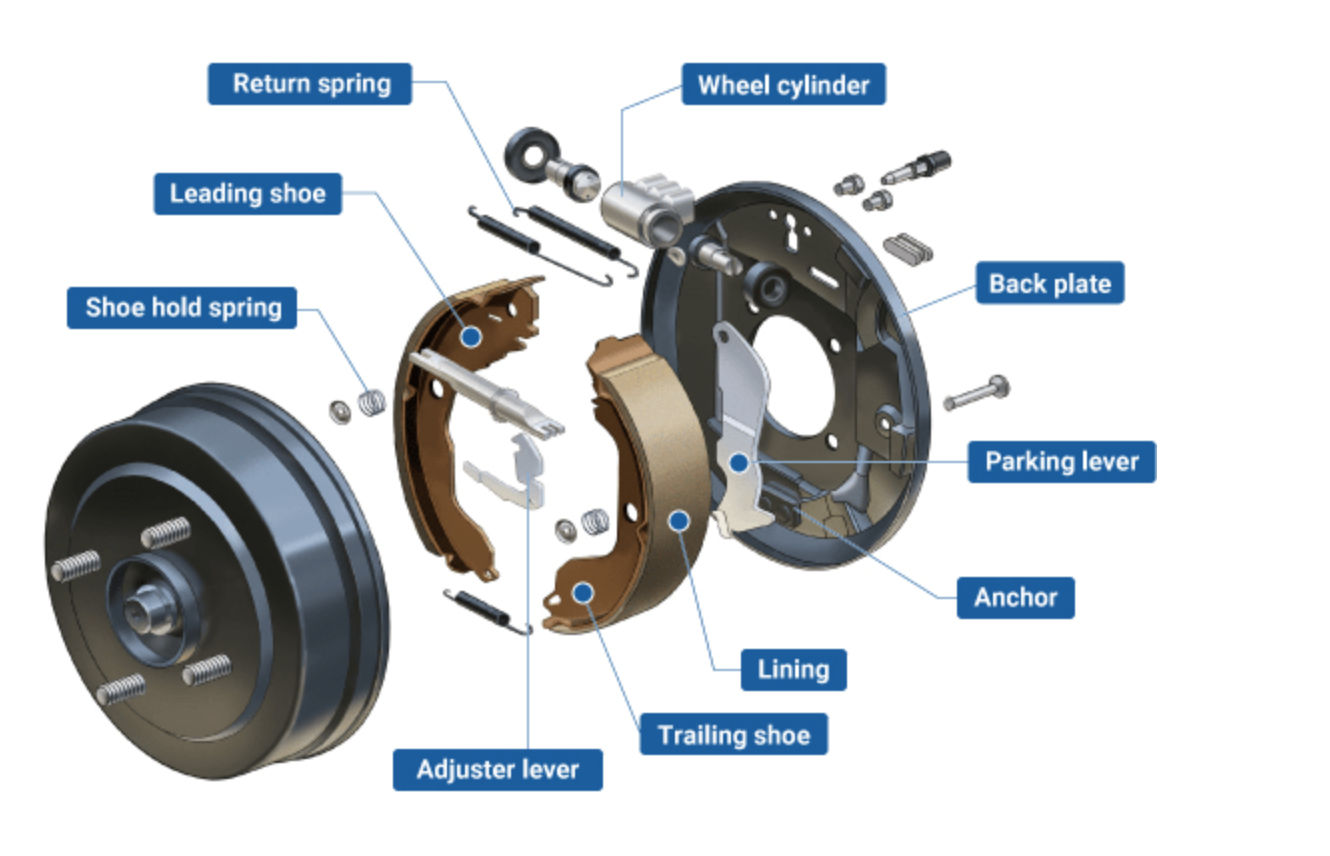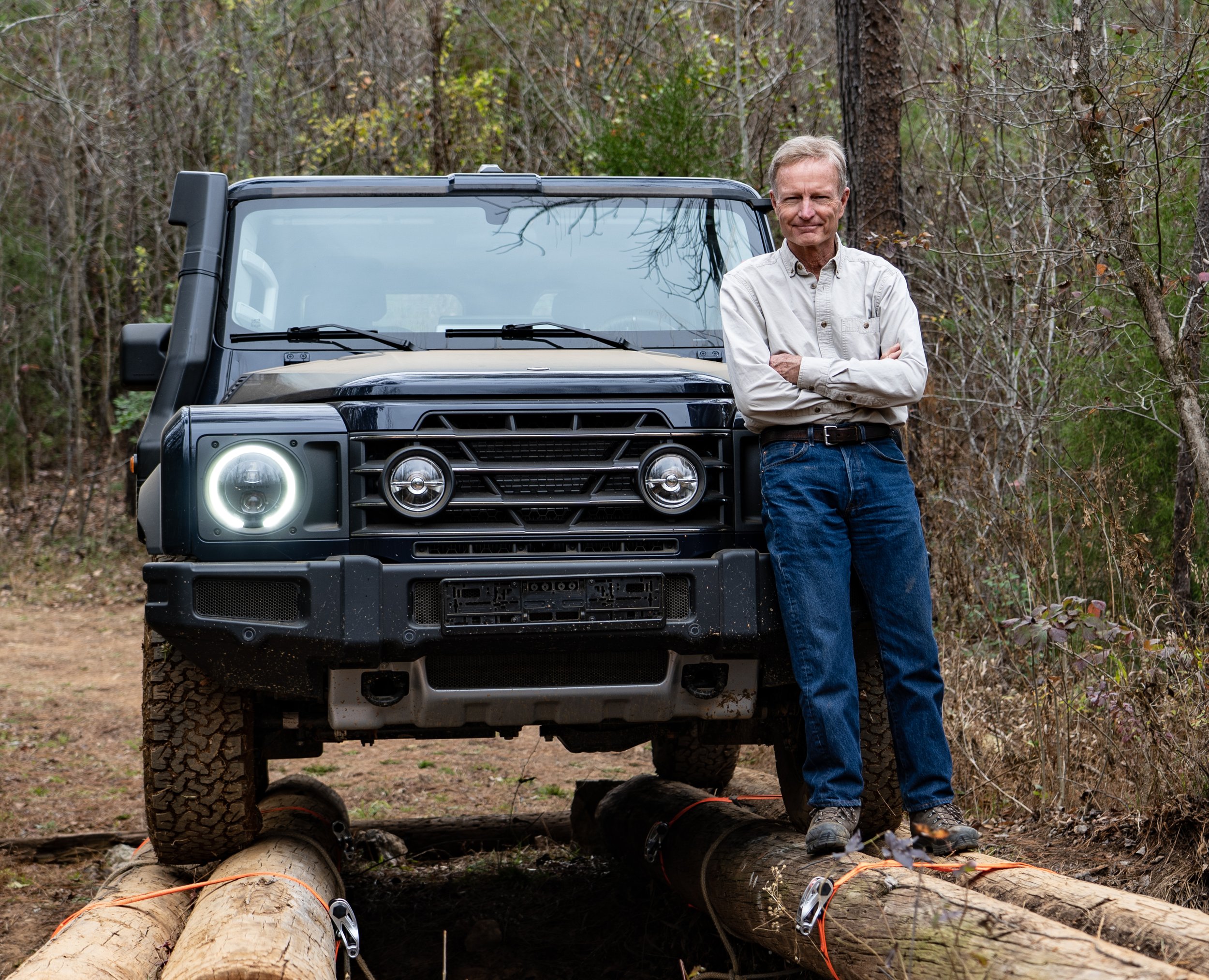
Overland Tech and Travel
Advice from the world's
most experienced overlanders
tests, reviews, opinion, and more
Once more, with feeling: Drum brakes are not "better off road."
It never fails to surprise me how persistent myths can be, even when there is an abundance of authoritative evidence to counter them.
A recent, otherwise informative and enjoyable article in a magazine I receive highlighted a classic four-wheel-drive vehicle from the 1960s. In describing the mechanicals, the writer noted that the brakes were drums on all four corners—still perfectly common in those years (my 1973 FJ40 came with all-drum brakes). While acknowledging this as outdated technology, the writer nevertheless went on to say (I’m paraphrasing), that drum brakes are less susceptible to loading up with debris off road, and that they stay cooler than disc brakes.
These claims are, respectively, badly misleading and utterly wrong.
The claim that drum brakes are less likely to load up with debris—for example mud during an excursion through a mucky hole—might seem logical on the surface, since a disc brake’s rotor is completely exposed to the elements and is immediately doused with whatever comes its way. It is more difficult for gunk to work its way past a drum-brake’s backing plate and get into the mechanism. (No less an entity than Toyota Motor Corporation co-opted this line to excuse its parsimonious decision to retain rear drum brakes in the current Tacoma.)
The problem is that, once that gunk does get into a drum brake’s internals—and it will—it stays there until you disassemble it and clean it out, a time-consuming chore. Ask me how I know. A disc brake might squeal initially as slush impacts against the pad and disc, but it will quickly wipe itself clean, and if there is anything left a quick powerwash will take care of it. Drum brake shoes ride farther away from their contact surface on the drum, allowing debris to be caught between them.
The other claim, that drum brakes stay cooler than disc brakes, blithely ignores basic physics. Stopping a moving vehicle requires converting its kinetic energy into thermal energy. Period. All brake systems, whether drums or discs, have to absorb and then dissipate the exact same amount of heat when stopping an equivalent vehicle from an equivalent speed. Period. And while drum brakes absorb heat just fine—my FJ40, which now has four-wheel-disc brakes, stops no shorter than when it had all drums the first time you do so—they are are significantly worse at dissipating the heat they have absorbed. On a long, winding downhill road towing the 21-foot sloop I owned at the time the 40 still had stock brakes, the pedal would get progressively softer and less effective as brake fluid boiled into gas at the system’s wheel cylinders, where the drum brakes were retaining huge amounts of heat. Converting to disc brakes solved the issue as their rotors, exposed to the air, more rapidly dumped that heat.
So, once more, with feeling: Drum brakes are not “better off road.”
Hint: When using “Search,” if nothing comes up, reload the page, this usually works. Also, our “Comment” button is on strike thanks to Squarespace, which is proving to be difficult to use! Please email me with comments!
Overland Tech & Travel brings you in-depth overland equipment tests, reviews, news, travel tips, & stories from the best overlanding experts on the planet. Follow or subscribe (below) to keep up to date.
Have a question for Jonathan? Send him an email [click here].
SUBSCRIBE
CLICK HERE to subscribe to Jonathan’s email list; we send once or twice a month, usually Sunday morning for your weekend reading pleasure.
Overland Tech and Travel is curated by Jonathan Hanson, co-founder and former co-owner of the Overland Expo. Jonathan segued from a misspent youth almost directly into a misspent adulthood, cleverly sidestepping any chance of a normal career track or a secure retirement by becoming a freelance writer, working for Outside, National Geographic Adventure, and nearly two dozen other publications. He co-founded Overland Journal in 2007 and was its executive editor until 2011, when he left and sold his shares in the company. His travels encompass explorations on land and sea on six continents, by foot, bicycle, sea kayak, motorcycle, and four-wheel-drive vehicle. He has published a dozen books, several with his wife, Roseann Hanson, gaining several obscure non-cash awards along the way, and is the co-author of the fourth edition of Tom Sheppard's overlanding bible, the Vehicle-dependent Expedition Guide.





